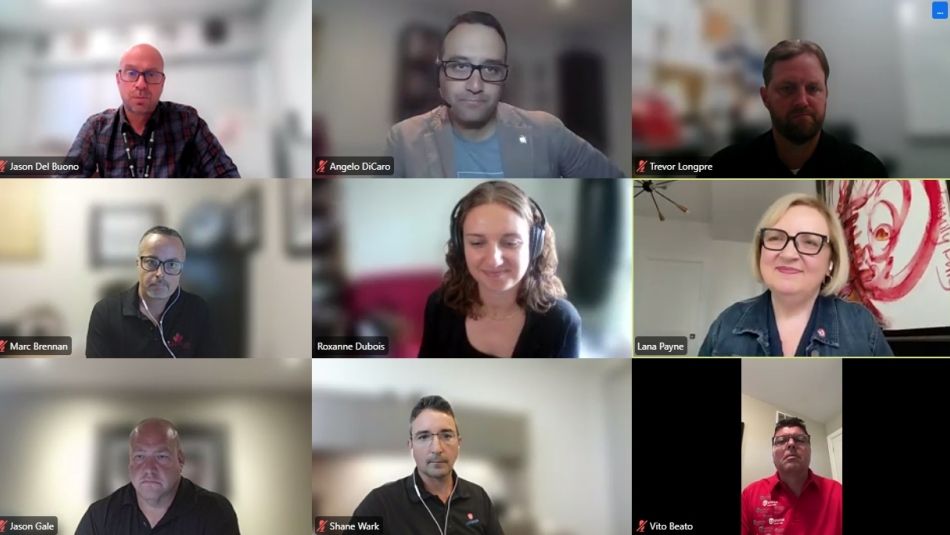
Share
Canadian auto workers are banding together and strategizing as sweeping tariffs from the United States on Canadian vehicles, parts, and raw materials threaten tens of thousands of jobs and billions in manufacturing investment.
In an Aug. 15 national webinar on auto tariffs, Unifor President Lana Payne told auto sector members that the union’s position is clear: If you sell in Canada, you must build in Canada.
“We have been clear that a bad deal, that legitimizes tariffs with the United States is worse than no deal at all right now,” said Payne.
“This is the fight of our lives, [and] we may need to be prepared to lay it all on the line. There is so much at stake right now and at risk. We’re up against a U.S. President who has been very clear about he wants – he wants auto jobs and is willing to use extortion and threats on a daily basis to get them. And it is us – collectively – that is standing in his way.”
Since the U.S. imposed tariffs of up to 50% on steel, aluminum and copper products, 25% on finished vehicles and parts, and other levies on key manufacturing inputs, the Canadian auto sector has been scrambling to adjust. The measures, including different treatment for CUSMA complying goods, are framed by the White House as a way to protect American jobs, but instead are designed to shift vehicle assembly south of the border.
“If these tariffs are not dealt with, the Canadian and North American auto industry will never look the same. And we need to look at this as a crisis,” said Trevor Longpre, Local 199 General Motors Plant Chair at the St. Catharine Propulsion Plant and GM Master Bargaining Committee Chair.
“Maybe the biggest industrial crisis we will face in our lifetimes. And everything is at stake.”
Unifor Research Director Angelo DiCaro warned that Canadians should be prepared for more incoming stings on the tariff front.
“Heavy trucks, semiconductors, pharmaceuticals, aircraft, drones wood products, critical minerals and polysilicon — this list grows much larger,” he said. “We’re nowhere out of the woods yet, and there’s more damage still to come.”
The federal government needs to use its full force to establish a permanent resolve that is based on zero tariffs, for the Canadian auto industry, DiCaro added, and that auto manufacturers must maintain their Canadian investments commitment and production footprints.
While Canadian-made parts shipped directly to U.S. plants currently avoid tariffs under a temporary reprieve, parts inside Canadian-assembled vehicles exported to the United States are hit with the full 25% levy. Unifor argues this loophole is intentional, keeping American assembly plants running while undermining Canada’s.
The impact is already visible. Stellantis has delayed planned electric vehicle retooling at its Brampton assembly plant. Its Windsor plant has seen production slowdowns and a postponed third shift. General Motors has also announced job and production cuts at Oshawa and Ingersoll.
Unifor is urging Ottawa to respond forcefully, including continued counter tariffs on vehicles built in U.S. and ensuring that automakers in Canada who benefit from tariff exemptions maintain their Canadian workforce and investment commitments.
The union is also pressing the federal government to deploy its $2 billion Strategic Response Fund to keep the auto sector afloat during the trade dispute.
“Auto workers and steel workers and forestry workers must not pay the price of this trade war.”
Payne said Unifor is preparing a second phase of its “Protect Canadian Jobs” campaign this fall, with rallies planned in key auto towns, and is asking for not only auto workers, but all members from different industries, to come together in solidarity to fight.
“We don't give up, and I know that I can count on all of you to be there in the days and weeks ahead, no matter what is asked of us,” she said. “So please stay strong.”


